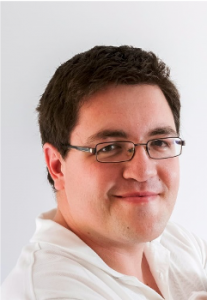I’m sure you, by virtue of being on this site right now, have wondered about counselling, therapy, psychologists and so forth. What is the difference? Can they actually help me? Do they just want to lure me into a crutch-like relationship that has no end, where I just sit on their couch sharing my life while they just nod and ask how I feel about it?
It is heartbreaking that many people judge the psychology world by the picture that Hollywood has painted for us. In countless movies the psychologist is portrayed as a know-it-all guru who traps people in an extended, dependency driven relationship. There is a big fluffy couch where the patient will lie down and share their story, while the distracted ‘shrink’ continuously asks “how do you feel about that” and bluntly stops the session the moment time is up. In many movies the client never resolves issues and is just told to come back next week.
In light of this I am overjoyed to tell you that most counsellors sees this portrayed image and goes out of their way to break and correct this view of the counselling world.
According to the British Association of Counselling (BAC,1986):
- Counselling is the skilled and principled use of relationship to facilitate self-knowledge, emotional acceptance and growth and the optimal development of personal resources.
- The overall aim is to provide an opportunity to work towards living more satisfyingly and resourcefully.
- Counselling relationships will vary according to need but may be concerned with developmental issues, addressing and resolving specific problems, making decisions, coping with crisis, developing personal insights and knowledge, working through feelings of inner conflict or improving relationships with others.
Most counsellors are highly skilled individuals with backgrounds in psychology, social work, nursing or education. Counsellors also continuously upskill by attending short courses and seminars on current problems that society is facing. The fact that many counsellors choose to register with appropriate boards and councils give them principles and guidelines to follow in their practice.
Now for the most important aspect and focus of this article:
What is the goal of counselling?
The goal of counselling is to build such a strong relationship between counsellor and client that there is space for growth and exploration on both accounts. By building an empathetic, non-judgemental and accepting space the client will be able to open up and share their deepest pain, fears, hurt and ideas. For many clients this will be the first and only space where they can truly be themselves and share what they feel. This is an incredibly powerful space where, in many instances, for the first time, the client can hear if they are ‘normal’ or if others also go through similar hardships.
By sharing and trusting the counsellor the client builds and expands this space where the counsellor can then explore and discover what the client actually feels, believes and fears. It is then the counsellor’s privilege to take everything that the client brings and help the client go on a journey of guided exploration into their own mind and psyche. The counsellor is not there to tell the client what to do, believe or think but rather to help them see the bigger picture, to connect the dots between events and feelings or previous mysteries.
A skilled counsellor will be able to guide the client to find, in themselves, the answers they are seeking for and be able to give the client back a sense of power and control over their own lives again. The counsellor is only a small part of the client’s life journey and therefore the aim of this process should always be to share skills, discover resources and empower the client to live and interact with the world more effectively.
The topics or problems that are discussed are completely up to the client. The counsellor will discover and explore what the client brings to the table and then propose a plan to deal with each topic in such a way that a resolution could be reached within a couple of sessions. In counselling the goal is never to build a crutch-like relationship where the client cannot function without a weekly visit.
Many people see the professional psychological world as a tiered mountain, with psychiatrists at the top, then psychologists and at the base, the counsellors. In some cases, according to education and hourly fee this picture could be accurate, but in the real world this is a fallacy. All three of these professions have a specific goal, target market and problems they deal with.
- Psychiatrists are the only psychological professionals that can prescribe medication. They can diagnose a person who presents with disorders and assist the patient to be able to function normal again.
- Psychologists can diagnose clients with psychological disorders and focus on treatments and therapies to heal, or help the client function in everyday life again. They can assist any person who approaches them.
- Counsellors are able to help any person with a wide array of problems. Counsellors cannot diagnose a person with a disorder, but can assist a person, who has already been diagnosed, with skills and strategies to cope in their everyday life. In most instances counsellors are more affordable and therefore more accessible to the public. Counsellors are able to deal with everyday issues that mentally healthy people are struggling with. For example: marriage, parenting and study problems.
There is a stigma that only sick or broken people go for therapy. This is plainly not true. Therapy is for any person, who is stuck or struggling in a specific part of their life, who wants to overcome this issue and get their power back to face life and all its challenges. It takes a very brave person to acknowledge that they are stuck and need help.
In life some people are destined to be leaders, directors, front runners…while others work equally or even harder, behind the scenes, to make the world function more smoothly. I have always found great fulfilment and joy in supporting and enabling others to reach their full potential and their Godly calling.
A lifelong dream is to be fully equipped to counsel and help people pass stumbling blocks in life, to give career guidance and to facilitate restoration of intra-familial relationships.



